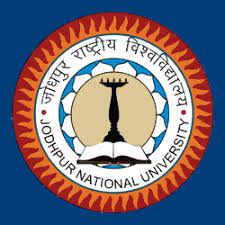A Ph.D. in Biology is a degree that focuses on conducting research and developing professional skills in the field of biology. The curriculum emphasizes the publication of research results in high-quality journals, oral and written presentations at conferences, and grant funding for graduate research. The doctoral program typically includes more courses on a specific topic, such as ecology or marine biology. Other areas of study include biochemistry, cell, and molecular biology, and genetics.
Ph.D. programs in the fields of evolutionary genetics, genomics, population and community ecology, sensory ecology, and ecological genomics. Ph.D. programs in biology are interactive and rigorous and focus on cutting-edge fundamental research. These programs include coursework in organismal behavior and sociality, as well as concentrations in molecular genetics, evolutionary biology, and systems biology. A Ph.D. in biological sciences prepares students to become educators, researchers, and scientists.
A Ph.D. in biology program requires the completion of a formal dissertation and original research project. It prepares students for successful careers as scholars and researchers. With the world's complex problems, we need scientists with advanced research and problem-solving skills. The UND Ph.D. in Biology program blends world-class academics with a diverse and innovative research environment to create a unique educational experience for students.
In addition to research training, this program includes graduate-level courses, seminars, and hands-on teaching experience. Students are assigned a faculty advisory committee made up of three members. This group determines which degree track is best for them.
Eligibility:
Candidates who want to take admission in Ph.D. must have a post-graduate degree in biology with at least 55% marks from a recognized university and must have passed the national level entrance examination or university level entrance examination. National level entrance exams like UGC NET / UGC CSIR NET / GATE / SLET or University entrance exam consisting of written tests and personal interviews.
Benefits of the Ph.D. in Biology
A Ph.D. in Biology is a research-intensive doctoral program, with a strong focus on teaching. It is designed to prepare graduates for careers as educators and scientists. The benefits of a Ph.D. in Biology program include a competitive stipend, health insurance, and other perks. The program also provides extensive training in pedagogy, outreach, and communication, preparing students for careers in academia and biotechnology. Moreover, students are required to complete two semesters of teaching to earn their doctoral degrees. Besides a Ph.D. in Biology, a student who completes the program is guaranteed full tuition and health insurance for the entire six-year period. The degree is also accompanied by extensive training in pedagogy, outreach, and communication, which prepares graduates for careers in biotechnology and academia.
Career & Job opportunities
The Ph.D. in Biology is the highest level of education available. The course is usually three to five years long. Admission is competitive and requires an aggregate score of 50%. Candidates must also submit a research proposal and write an original dissertation. This Ph.D. is ideal for those who are interested in studying the basic science of life. The career outlook for this degree field is excellent. After completing the course, you can pursue a career in the field of biotechnology.
Top recruiting companies for Ph.D. students are HCL, Sun Pharmaceutical Industries Ltd., and Paramount Diagnostics & Research Center. These organizations will conduct personal interviews with applicants.
Once a candidate has completed their graduate-level coursework and has a dissertation, they can begin applying for graduate school. Most universities require applicants to teach two semesters of biology, which is typically done as a teaching fellow. A Ph.D. in biology will earn a competitive salary, which can vary from $140,000 to $80,000.
In addition to graduate-level degrees, Ph.D. students are guaranteed five years of support from their university. For these reasons, Ph.D. courses in the field of biology are among the best options for graduate students.
Course Duration:
The Ph.D. biology courses are a minimum of 3 years and a maximum of 5 duration. This depends on the university offering the course.
Course Fees:
The average fee for a Ph.D. biology degree is between INR 50000 and INR 500000.
 5 Years
5 Years
 PhD
PhD
 Research
Research


































 back
back